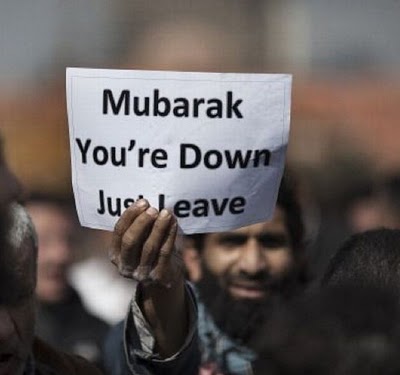Something is Wrong in the Cradle of the “Arab Spring”: Reflections on Egypt’s Revolution Three Years Later

Having followed and written [1] on the Egyptian uprisings since 2011, on the third anniversary of the (not yet realized) revolution I find myself somewhat befuddled. And I suspect I may not be alone in my confusion. The Egyptian revolution originally began with calls for “bread, freedom, social justice and human dignity.” Nowhere in this popular discourse were there demands for greater religiosity [2] or increased state force. Yet today we find a battle being waged in Egypt between religious extremism (and the supporters of the ousted Muslim Brotherhood), on the one hand, and repressive (Mubarak era) military and state forces, on the other.
Something is wrong in the cradle of the Arab Spring. What happened to the definitive issues—which were largely concerned with access to food and jobs—of the people’s revolution? How did an uprising that had nothing to do with religion or sectarian cleavages result in the very temporary coming to power of a religious political party—that was actually largely absent and silent during the initial uprising—just long enough to polarize the population and elicit the very type of extreme state force much of the population was opposed to under Mubarak; yet currently hails as heroic?
While the subject and spectacle has been focused on the battle between Brotherhood supporters and the military state, those sympathetic to the cause of the 2011 uprising may be keen to note that both sides are antithetical to the original people’s uprising and its demands and grievances. It’s as if the people’s revolution— which originally sought, in part, to undo or oppose the policies of global neo-liberalism—has gone, or been taken, down a path that increasingly distorts and undermines its initial ideals and demands while violently polarizing a previously more cohesive population.
If I was a complete cynic, I might even go as far as to say that the bizarre and temporary governing tenure of the Muslim Brotherhood ushered in just enough social turmoil and fissure to allow a once contested Mubarak-era military elite to (violently) re-emerge as the stout (and constitutionally backed) protectors of the peace and the nation. So, it seems that the more things “change,” the more they stay the same. Or in this case change for the worse; with the country growing more and more violently destabilized.
So who or what ultimately benefits from the post-revolutionary state of the country? Has the diversion and chaos since Morsi came to and was ousted from power brought the Egyptian people closer to “bread, freedom, justice and human dignity”?
Three years after the initial uprisings many are left wondering just what happened and whose interest (or interests) are served in the end. These questions are beyond the scope of an op-ed piece but I would like to note the following:
- It might be argued that the highjacking of the people’s revolution by diversionary issues and divisions (over religion, etc) has channeled, misdirected, exploited and wasted the people’s energy.
- Today the people are spent and, even worse, at conflict with one another; a population bewildered, drained, diverted and sometimes divided.
- In an ironic twist, with their energies spent and misdirected, the Egyptian people are far less of a threat to—with a vast many applauding—Mubarak-era military elites than they were before the initial uprising.
- Having suffered under the rule of the Muslim Brotherhood for a year (let us remember that Morsi used the State apparatus to increase his own powers and “private militias” to violently repress protestors), part of the population became almost inadvertently “welcoming” of and acquiescent to remnants of the old (pre-revolution, US-backed) regime, leaving fervent hopes for a new, just and less repressive Egypt still unrealized three years later.
Author’s postscript: This article was written before numerous bombs rocked Cairo early morning January 24. In light of these recent tragic events, there is even greater reason to ponder about who or what interests (both inside and outside of the country) benefit from an increasingly destabilized, violent and dangerous Egypt? It most certainly is not the unfortunate Egyptian people; who deserve far better!
Ghada Chehade is a writer and performance poet. She holds a PhD from McGill University www.ghadachehade.com
Notes
[1] http://www.globalresearch.ca/egypt-at-a-crossroads-from-revolution-to-military-coup/5341536
http://www.globalresearch.ca/egypt-s-elections-and-the-stillborn-revolution/31648
http://www.globalresearch.ca/ows-reform-or-revolution-and-the-lessons-from-egypt/28102
http://www.uruknet.info/?p=m75255&hd=&size=1&l=e
[2] Though, as I’ve pointed out elsewhere, the Muslim Brotherhood was the frontrunner to win a post-revolutionary election (despite their limited involvement).

